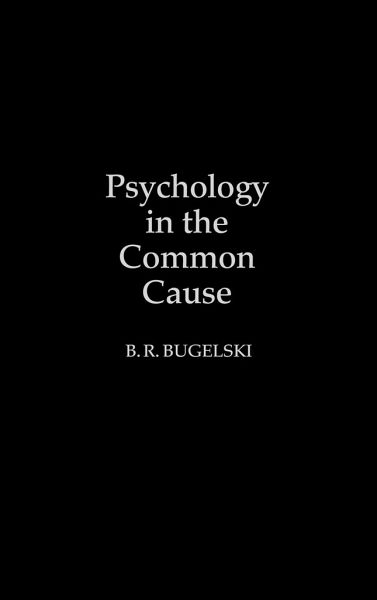
Psychology in the Common Cause
Versandkostenfrei!
Versandfertig in 1-2 Wochen
88,99 €
inkl. MwSt.

PAYBACK Punkte
44 °P sammeln!
In Psychology in the Common Cause, Bugelski examines the problems we face by living in groups--war, poverty, inflation, unemployment--and asks whether psychology has anything to offer in connection with such problems. Writing from a unique behavioral perspective, Bugelski poses profound questions about current psychological efforts to contribute to human affairs, adding a new dimension to the ongoing debate about psychology's ultimate potential to ameliorate some of the more intractable problems of everyday life. His arguments, although supported by empirical research and theory, are couched i...
In Psychology in the Common Cause, Bugelski examines the problems we face by living in groups--war, poverty, inflation, unemployment--and asks whether psychology has anything to offer in connection with such problems. Writing from a unique behavioral perspective, Bugelski poses profound questions about current psychological efforts to contribute to human affairs, adding a new dimension to the ongoing debate about psychology's ultimate potential to ameliorate some of the more intractable problems of everyday life. His arguments, although supported by empirical research and theory, are couched in terms accessible to both the interested general reader and the undergraduate who seeks new insights into psychological approaches to contemporary life. Focusing on four particular problem areas--population problems, and those involving law, business, and education --Bugelski argues that, in many cases, psychological approaches aimed at producing a better world suffer from serious shortcoming. Indeed, Bugelski contends, there are some areas--economic behavior, for example--in which no meaningful applications of psychology are possible at all, pointing to the need for different approaches. For those areas in which psychology can make a contribution, Bugelski highlights behavioral principles which can help people live with, even solve, some of the problems inevitable when people live in groups. In his conclusion, Bugelski addresses the lessons learned and the issues raised in applying psychology to the common cause.












